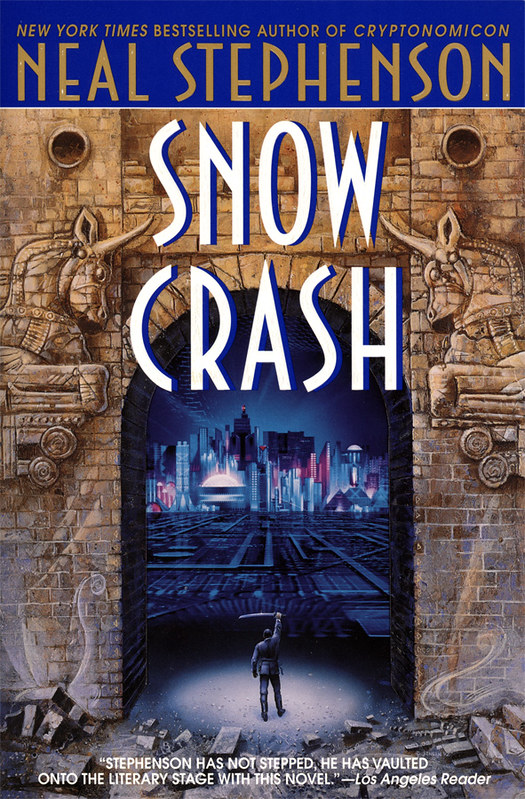
The world is growing. Computers get smarter, cars, trains, and technology grow more sentient and more powerful. AI is beginning to outgrow creativity. Image AI like Mid journey is already showing steady potential for replacing creative jobs.
Through all of this, humanity itself is declining. And this is what Snow Crash is trying to represent through the down-to-earth, gritty description, creativity across a universal spectrum, and a wonderful plethora of concepts explored through a satirical tone of voice.
Gone are the past explorations of humanity underneath twisted, evolved, and cold, human nature that grew warped underneath the infinitely growing world and overpopulation. Movies like Soylent Green, Brazil, and Blade Runner. This book is a cyberpunk, dystopian romp through America and a critical examination of what we needed most. Snow Crash is exciting and creative. It offers a perspective that no other science fiction before it has ever explored. Stephenson's later novels never feel as wonderful, fresh, and invigorating as his debut masterwork.
It chooses to reveal certain aspects of American Society underneath the chaos of corporate, commercial America. Distributed Republics("franchulates") that form gigantic empires bent on building profit from the citizenry, building endless highways, with endless billboards of advertisements. Hyperinflation from a government unable to support its people has caused most people to resort to alternative currencies such as "Kongbucks" (for Mr. Lee's Greater Hong Kong). Hyperinflation has also forced refugees from Asia to build rickety ships and cross the Pacific Ocean in hopes of arriving in America.
But besides the expansive political system, Snow Crash explores linguistics in an interesting way. Linguistics in Snow Crash is influenced by computers, cyberspace, and an atmosphere of extreme information overload. The view of the magical power of language and the influence of language on the 'information' age.

Comments
Post a Comment